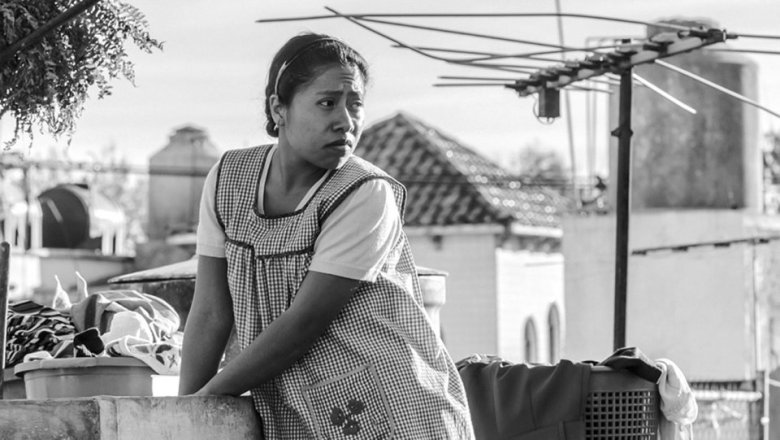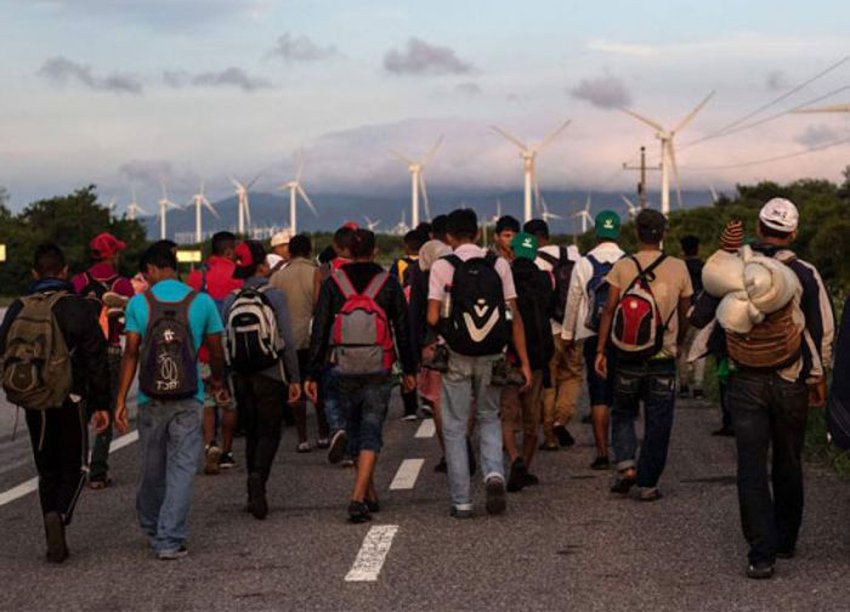Migrants want help getting to the capital where they wish to meet with lawmakers
by Mexico News Daily
Around 4,000 Central American migrants will remain in Juchitán, Oaxaca today as they attempt to organize mass transportation to Mexico City.
At a meeting last night, members of the first and largest of the three migrant caravans now in Mexico formed a committee to negotiate with authorities to try to secure buses to take the weary migrants to the capital.
The mainly Honduran migrants, including many women and children, are currently camped out at a disused bus station in the Isthmus of Tehuantepec city that last year was ravaged by a powerful 8.2-magnitude earthquake.
Around 4,000 Central American migrants will remain in Juchitán, Oaxaca as they attempt to organize mass transportation to Mexico City.
At a meeting last night, members of the first and largest of the three migrant caravans now in Mexico formed a committee to negotiate with authorities to try to secure buses to take the weary migrants to the capital.
The mainly Honduran migrants, including many women and children, are currently camped out at a disused bus station in the Isthmus of Tehuantepec city that last year was ravaged by a powerful 8.2-magnitude earthquake.
Water tanks were set up at the site to allow the travelers to bathe and a giant screen projected soccer matches, children’s shows and the movie Coco.
Most members of the caravan slept on the ground on blankets or cardboard with tarps tied to foliage providing only rudimentary protection.
“We are waiting to see if they are going to help us out with buses to continue the trip,” 27-year-old Honduran farmer Omar López told the Associated Press.
Red Cross personnel today bandaged López’s feet, left badly-swollen after walking on highways through Guatemala and Mexico every day for the past two weeks and sleeping exposed to the elements with nothing more than a thin sheet of plastic for cover.
If Mexican authorities do provide transportation — as yet they have provided no indication that they will — caravan representatives said they will travel to Mexico City to meet with federal lawmakers.
Most migrants intend to continue their journey towards the United States border after stopping in the capital despite threats from U.S. President Trump that they won’t be welcome when they arrive.
Trump continued his hardline rhetoric against the Central American migrants today, writing on Twitter:
“Our military is being mobilized at the Southern Border. Many more troops coming. We will NOT let these caravans, which are also made up of some very bad thugs and gang members, into the U.S. Our Border is sacred, must come in legally.
Mexican authorities are treading a fine line between trying to avoid upsetting the United States government and treating the migrants in accordance with international humanitarian obligations.
During the caravan’s first week in Mexico, Federal Police sometimes forced migrants off paid minibuses, citing insurance regulations, and stopped trucks from giving the Central Americans rides.
However, in recent days officials have helped organize transportation for straggling women and children and police have stood by as migrants clambered onto passing trucks.
The Secretariat of the Interior (Segob) said in a statement yesterday that two Honduran men who requested entry to Mexico were found to have arrest warrants against them in their country of origin, one for suspected homicide, the other for drug offenses.
The two, who were arrested in Chiapas, were deported to Honduras. Segob said the men were part of the migrant caravan but didn’t specify which.
A second caravan of as many as 2,000 migrants is still in Chiapas after entering Mexico Monday while a third contingent of Salvadoran migrants legally crossed into the country yesterday.
Despite Trump’s repeated claims that criminals are part of the migrant caravans, reporters traveling with the Central Americans and migrant advocates have denied that to be the case.
Asked about the U.S. president’s hardline stance on immigration, Honduran migrant Levin Guillén said “according to what they say, we are not going to be very welcome at the border” before adding “but we are going to try.”
The 23-year-old farmer from Corinto, Honduras, said that he had received threats in his homeland from the same people who killed his father 18 years ago.
Guillén hopes to find an aunt who lives in Los Angeles, where he hopes he will have the opportunity to live and work in peace.
“We just want a way to get to our final goal, which is the border,” he said.
Carlos Enrique Carcamo, a 50-year-old boat mechanic who is part of the second migrant caravan, echoed that sentiment although he added that if it doesn’t work out, there is also a Plan B.
“Continue on to the United States, that is the first objective,” he said. “But if that’s not possible, well, permission here in Mexico to work or stay here.”
Source: Associated Press (sp)
In other Mexico news:
Jalisco installing logistical hub in Honduras for Latin American exports
Small and medium-sized companies look to take some market share away from US
A group of exporters from Jalisco plan to establish a logistical hub in Honduras to help drive expansion into the Central American and South American markets.
The hub will be installed at Puerto Cortés, a port city on the Caribbean coast located 50 kilometers north of San Pedro Sula.
“We changed [the location of] the hub because Panama, where it was initially going to be set up, is renovating the Puerto Colón Free Trade Zone and Puerto Cortés offered us what we needed,” said Miguel Ángel Landeros, president of the western branch of the Mexican Foreign Trade Council (Comce).
“It’s a very modern port that’s practically in the middle of Central America. That’s where we’ll start operating,” he added.
Landeros said there are currently 19 Jalisco companies involved in the Comce-backed hub project who are seeking to tap into the southern markets.
The logistical hub will mainly benefit small and medium-sized Jalisco companies, giving them a warehouse that will allow them to ship their products more quickly and efficiently to different parts of the region.
According to Comce statistics, the seven Central American countries import products from the United States with a value of US $50 million per year.
By having a logistical hub in Honduras, the Jalisco companies hope to take some of that market for themselves.
Mexico currently lags well behind the U.S. in terms of exports to Central America.
For example, Honduras buys US $9 billion worth of products from the latter annually compared to just $US600 million from Mexico.
As part of their expansion into Central America, some of the Jalisco companies are also interested in setting up new production plants there.
The companies are planning to carry out trade missions to several Central American countries next year to strengthen their relations in the region and ensure that the hub project is a success.
Landeros said that in the first eight months of 2018, the value of all Jalisco’s exports was just under US $35.5 billion and the expectation is that the year will end with similar figures to last year when exports totaled US $48.4 billion.
For comparison, that figure puts it on a par with the states of Florida or Ohio, whose exports are worth only slightly more than those of Jalisco.
The Central American expansion is expected to help grow Jalisco’s export economy, which is made up of companies in 19 different sectors including agriculture, food and beverages, technology, auto parts, furniture and jewelry.
“Expectations for next year are very good because we will continue to broaden our [trade] links with other international markets,” Landeros said.
Source: El Economista (sp)







